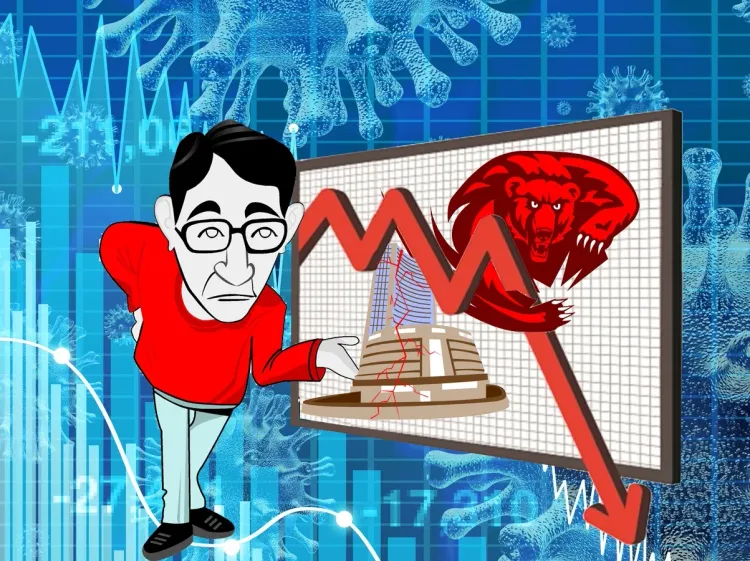Will Rising India-Pakistan Tensions Impact Indian Markets?

Synopsis
Key Takeaways
- The Indian markets closed lower due to geopolitical tensions.
- The Nifty declined by 1.39% and Sensex by 1.30%.
- Key sectors like realty and banking faced significant losses.
- Analysts suggest a cautious approach for investors.
- Monitoring geopolitical developments is crucial for market navigation.
Mumbai, May 10 (NationPress) The Indian stock markets concluded the week on a notably negative note, primarily due to escalating geopolitical tensions between India and Pakistan, which unsettled investors and sparked an extensive sell-off across various sectors.
The Nifty index declined by 1.39 percent, finishing at 24,008, while the Sensex dropped 1.30 percent to close at 79,454.47.
Among the sectors, real estate, banking, pharmaceuticals, and financial services experienced the most significant downturns, with losses varying from 2 percent to 6 percent.
Conversely, automotive and media stocks demonstrated some resilience, somewhat mitigating the overall decline. Broader market indices, including mid- and small-cap stocks, also faced declines, losing between 0.90 percent and 2.17 percent.
Looking ahead, analysts suggest that the upcoming week will be pivotal for the markets, with close monitoring of any developments in the mounting geopolitical situation between India and Pakistan.
“Moreover, key economic metrics such as the Consumer Price Index (CPI), Wholesale Price Index (WPI), and trade statistics will be under scrutiny,” stated Ajit Mishra from Religare Broking Limited.
“From a technical perspective, the Nifty is currently hovering near crucial moving averages, indicating a potential for further decline,” he added.
Mishra pointed out that immediate support for the Nifty is at 23,800, and should this level be breached, the index could slide down to 23,200.
“On the upside, any rebound is likely to encounter substantial resistance in the 24,400–24,600 range,” he noted.
Given the prevailing uncertainty, analysts have urged investors to exercise caution.
“With geopolitical tensions increasing market volatility, it’s advisable to concentrate on specific stocks rather than adopting aggressive positions. A hedged strategy is recommended to manage short-term risks, and staying informed about geopolitical developments is crucial for navigating the markets,” they advised.
In the meantime, reports indicate that the Pakistani military has begun moving troops into forward areas, suggesting an intention to escalate the situation further.
The Indian armed forces are maintaining a high level of operational readiness. All hostile actions have been effectively countered, according to government sources.










